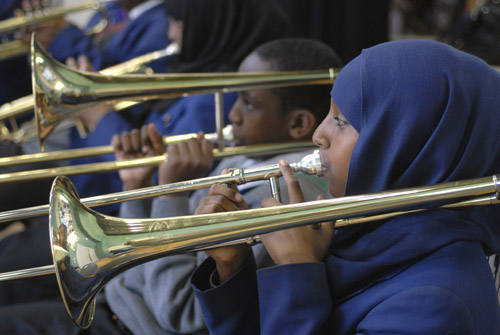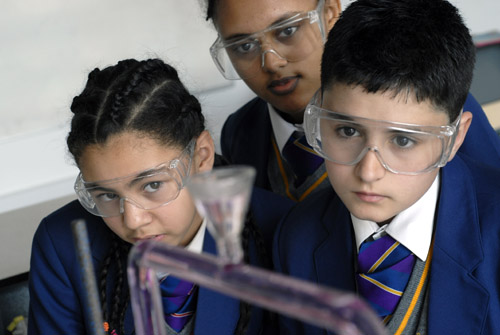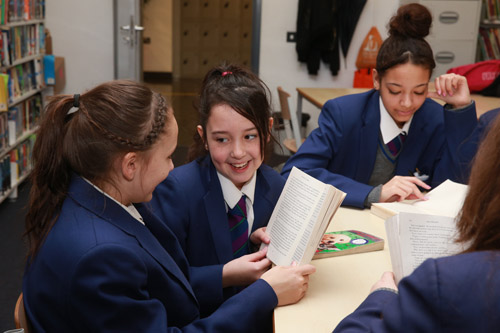We have high expectations for all our pupils and ensure that every learner is challenged and supported to reach their full potential.
Modern Foreign Language: Spanish Curriculum
Introduction
The renovated approach of the Modern Foreign Languages (MFL) Department to language learning prepares pupils with the necessary skills and language qualifications that are increasingly becoming crucial to access university and career opportunities.
We aim to equip pupils with the skills to become lifelong learners, strengthening their ability to express themselves as well as providing an insight into foreign peoples, countries and cultures and thereby broadening their intellectual horizons.
Our specific aims are that learners:
- Derive enjoyment and benefit from language learning
- Recognise that their knowledge, skills and understanding help them take their place in a multilingual global society
- Develop understanding of the language in a variety of contexts
- Develop knowledge of the language and its structures
- Develop knowledge of language learning skills and strategies
- Develop the ability to communicate effectively in the language, orally and in writing
- Develop awareness and understanding of countries and communities where the language is spoken.
The MFL course develops pupils’ communicative competence in the four equally important attainment targets of listening, speaking, reading and writing.
We also aim to broaden pupils’ knowledge and skills beyond the subject specification. In particular, MFL learners are required to work collaboratively with their peers as pairs or in groups, to develop independent research skills, to develop ICT skills, to learn to organise and manage their time and resources effectively, and to become reflective and independent learners.
The study of MFL at Key Stage 4 also requires pupils to explore and reflect on notions of citizenship, and personal and social responsibility.
The learning of a foreign language is an essential part of the curriculum therefore the Department offers Spanish for all year groups and soon will offer Latin and French as extracurricular activities.
Key Stage 3
Broad topics include:
- Phonics
- Greetings and introductions
- Self, family and friends
- Free time
- School
- Around town
Broad topics include:
- Holidays
- Spanish speaking countries, geography and daily life
- Food and drink
- Sports, hobbies and free-time activities
- Technology
- City
Broad topics include:
- Daily routine
- Healthy eating and healthy lifestyles
- Work and future plans
- Environment and social issues
- Spain and its culture
Key Stage 4
We follow the Pearson Edexcel GCSE exam courses. However, we have created our own schemes of work and we continuously update and craft our own resources in order to expand and make the Spanish curriculum more engaging.
We use the assessment resources, past papers and textbooks provided by Pearson Edexcel.
Pupils who speak another language at home are encouraged to join the Community Languages Project in Year 11 in order to attain an extra language GCSE. See below for further information.
Broad topics include:
- Holidays
- Education, school and technology
- Leisure and free time
- Identity and culture
Broad topics include:
- Around town and local area
- Social and environmental issues
- Festivals and customs in the Hispanic world
- World of work and future plans
Pupils who speak another language at home are encouraged to join the Community Languages Project in Year 11 in order to attain an extra language GCSE.
The Community Languages Project at Platanos College is a non-profit project and is aimed at those children in Year 11 who want to obtain a GCSE qualification in their native language.
Platanos College offers qualification in all languages offered by the UK government:
Arabic, Modern Greek, French, Italian, German, Chinese Mandarin, Punjabi, Polish, Portuguese, Turkish and Urdu.




